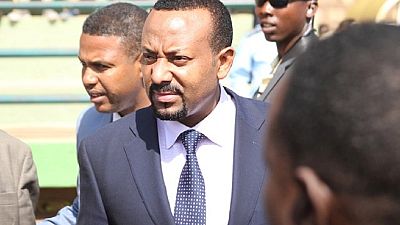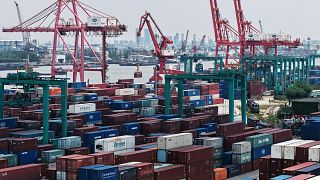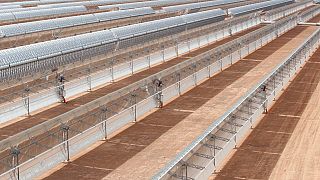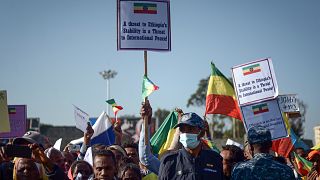Ethiopia
Ethiopia’s new prime minister said on Monday that a foreign exchange shortage will last for years and more cooperation with the private sector is essential to solve it, state television reported.
Abiy Ahmed, who was sworn in on April 2, addressed the local business community at a session of more than two hours in a hotel in the Ethiopian capital. His paraphrased remarks were later broadcast by state-owned Ethiopian Broadcasting Corporation.
“The crisis with hard currency will not be solved today, nor in the next 15 or 20 years. There is an urgent need for more cooperation with the private sector to find a solution,” Abiy was reported as saying, adding that remittances from Ethiopia’s diaspora communities had also fallen for political reasons.
Ethiopia has recorded average annual economic growth of about 10 percent for the past decade, the fastest in Africa. But foreign investors and local businesses complain that the severe hard currency shortages are stifling the private sector.
A prominent Ethiopian supermarket, reputed for having served the expatriate and diplomatic community in the capital Addis Ababa for seven decades, is closing down its operations, citing a crippling foreign exchange squeeze.
The International Monetary Fund said in January that Ethiopia’s foreign reserves at the end of the 2016/17 fiscal year stood at $3.2 billion, less than what it spends on imports in two months. The government does not regularly release foreign reserves figures.
The IMF flagged inadequate reserves as a downside risk to economic growth for 2017/18, which it forecast at 8.5 percent.
Despite high economic growth, the landlocked country of 100 million people is heavily dependent on imports. The IMF said export revenues last year were largely unchanged despite volume growth as global agricultural commodity prices remained low and exports from manufacturing, following the start of an industrialization push, are just beginning.
Abiy’s remarks on Monday were his first substantive public comments on the economy since he was sworn in.
On visits to several areas of the country, he has been at pains to stress unity among the many ethnic groups and has promised to expand political and civil rights, though he said in public addresses that Ethiopians must give him time to take these steps.
The government appears to have ended a months-long shutdown of internet outside the capital, but a state of emergency introduced the day after Abiy’s predecessor resigned in February remains in place.
“It would be too optimistic to expect that the new prime minister’s government will overnight dismantle all the layers of authoritarian control that have for decades been at the centre of state power in Ethiopia,” said Juliet Nanfuka from CIPESA (Collaboration on International ICT Policy for East and Southern Africa), a Uganda-based body.
The 42-year-old former army officer also called for Ethiopian businessmen to repatriate their hard currency.
“Are your hard currency reserves only kept inside the country? Have you not stashed them in accounts in Dubai? “ he asked at the gathering.
“If you would transfer them back to Ethiopia from your accounts in Dubai and China, it would be of immense benefit to a country that is struggling with shortages at the moment.”
He said that anyone found to have illegally taken hard currency out of the country would be held accountable, but he did not give details.














01:54
South Africa's independent mechanics join forces to compete with big companies
02:16
In China, young African entrepreneurs personify growing China-Africa cooperation
Go to video
How Ugandan women are taking control of the coffee business
Go to video
Kenya set to surpass Ethiopia as East Africa’s largest economy in 2025 – IMF
Go to video
Ethiopians mark Easter with calls for peace and love amid ongoing conflict
02:19
Ethiopians in Washington D.C. keep ancient language and orthodox traditions alive